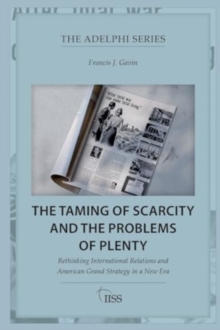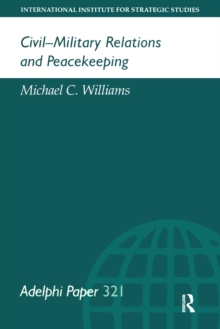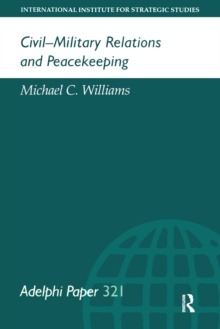
Repairing the Damage : Possibilities and Limits of Transatlantic Consensus PDF
by Dana H. Allin, Gilles Andreani, Gary Samore, Philippe Errera
Part of the Adelphi series series
Description
The damage that has been done to the transatlantic alliance will not be repaired through grand architectural redesigns or radical new agendas.
Instead, the transatlantic partners need to restore their consensus and cooperation on key security challenges with a limited agenda that reflects the essential conservatism of the transatlantic partnership during the Cold War and the 1990s.
There will inevitably be big challenges, such as the rise of China, where transatlantic disparities in strategic means and commitments preclude any common alliance undertaking.
Yet such limits are nothing new. The absence of a common transatlantic commitment to counter-insurgency in Iraq may cause resentments, but so too did the lack of a common commitment to counter-insurgency in Vietnam. This Adelphi Paper suggests ten propositions for future transatlantic consensus – that is to say, ten security challenges for which the allies should be able to agree on common strategies.
These run the gamut from an effective strategy to prevent Iran from developing a nuclear weapons capability to transatlantic leadership for international cooperation against global warming.
If pursued with seriousness and a reasonable degree of transatlantic unity, these propositions could constitute the foundations of an effective partnership.
They are, in the authors’ view, the basis for a consensus on the most pressing security challenges of the twenty-first century.
The time is right for this kind of serious rededication to alliance purposes.
There has already been some effort to repair the damage; moreover, new leaders are in place or coming to the countries that were major protagonists of the transatlantic crisis: Germany, France, Britain and, in 2009, the United States.
It is possible that these four new leaders will be better able to put the disputes of the recent past behind them.
This extended essay is a guide to the possibilities, and also the limits, of a new start.
Information
-
Download - Immediately Available
- Format:PDF
- Pages:104 pages
- Publisher:Taylor & Francis Ltd
- Publication Date:04/07/2013
- Category:
- ISBN:9781134974054
Other Formats
- EPUB from £24.29
- Hardback from £160.00
- Paperback / softback from £26.99
Information
-
Download - Immediately Available
- Format:PDF
- Pages:104 pages
- Publisher:Taylor & Francis Ltd
- Publication Date:04/07/2013
- Category:
- ISBN:9781134974054










